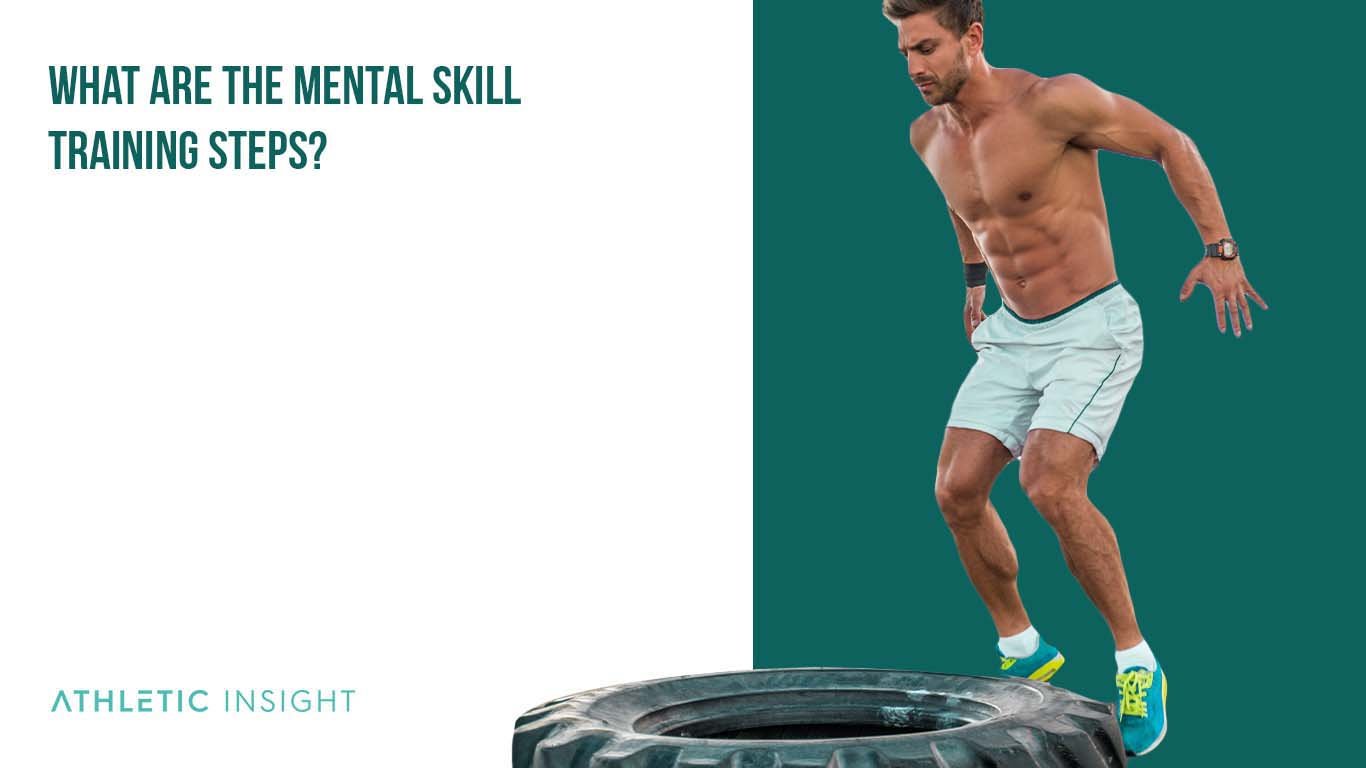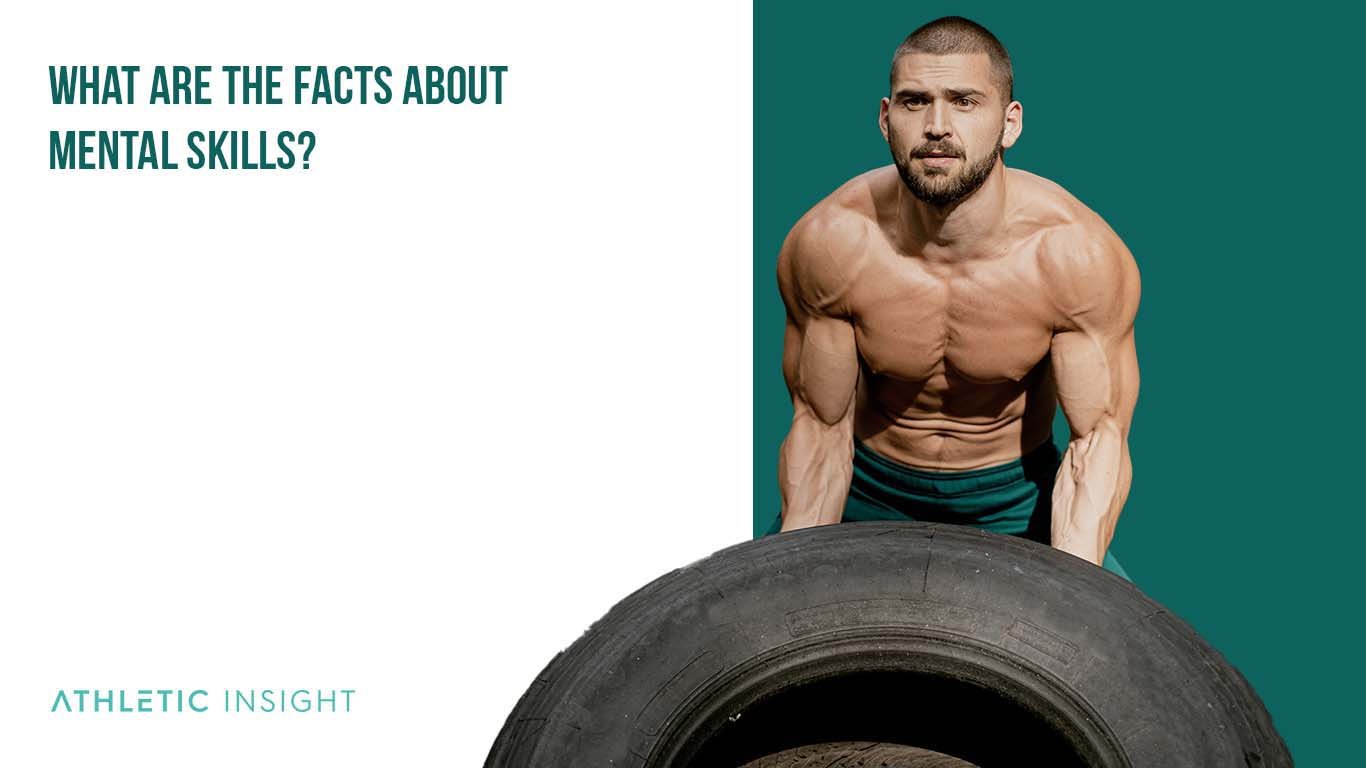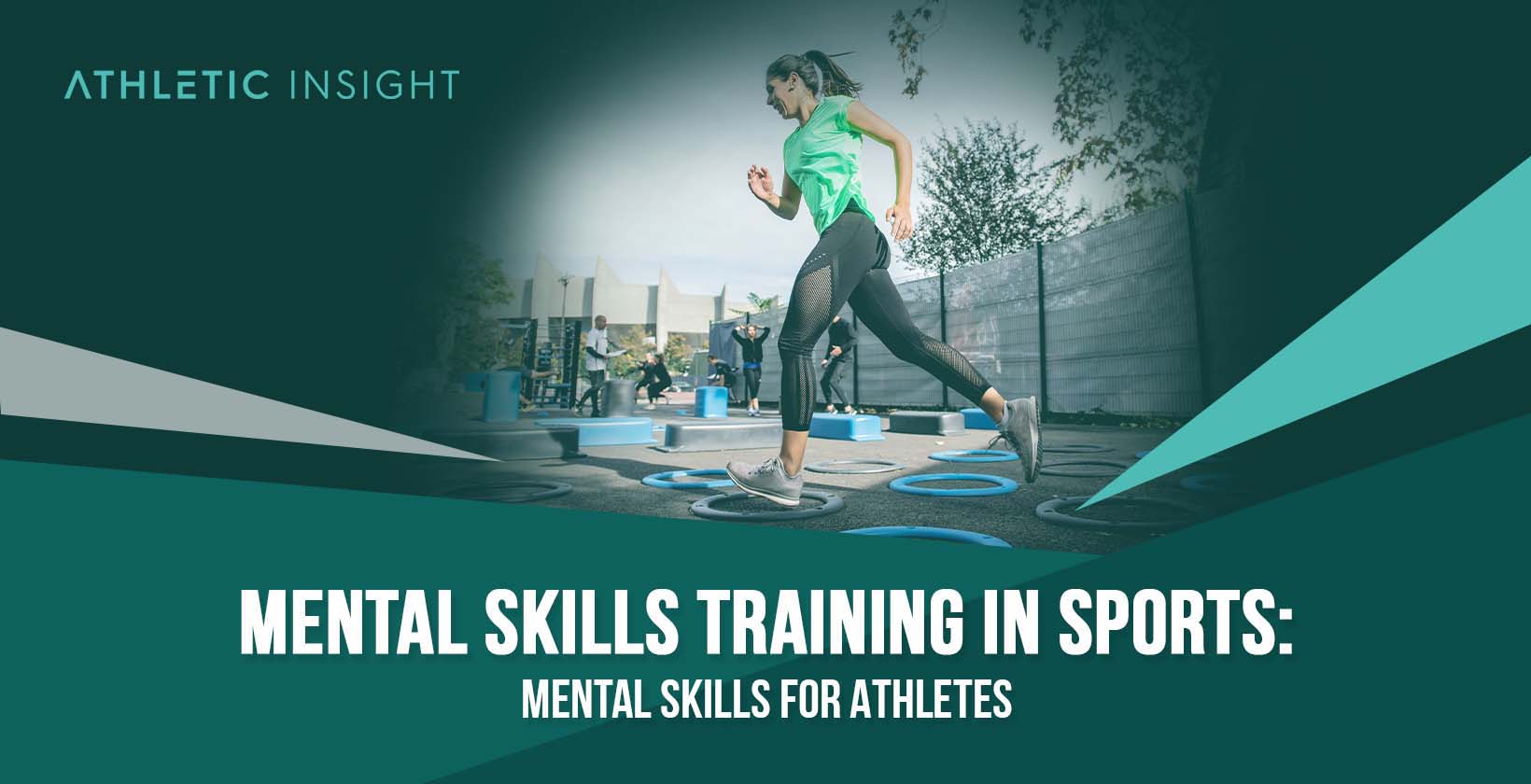Mental skills are defined as the power of your mind to enact your vision. Mental skills training in sports is becoming increasingly commonplace as coaches recognize the validity of training the brain the same way you train your muscles. This method can produce optimal results when executed before, during, and after-performance training.
Mental skills training directly impacts an athlete’s peak athletic performance. It involves mindful exercises to help adjust their perception, actions, and physical sensations for better execution. After all, what goes on in your mind affects your physical performance.
What Are the Mental Skill Training Steps?
Anytime an individual learns a new skill, practice is necessary. A consistent routine is critical when learning new psychological skills, like mental skills training for sports.

For best results, you should practice about five to six days per week, each session lasting five to 10 minutes. You can practice more than once per day.
There are also multiple modalities for training the mind. A great way to remember the process below is using the following acronyms. These represent a list of mental skills that every athlete should refine for taking their performance to the next level.
1. GOALS (Goals, Imagery, Feelings, Thoughts, Support)
Goals are defined as your ambition, the thing you strive for with effort.
- Goals : Having a set of goals gives you a clear idea of what you want to achieve. Break goals into smaller and more achievable sub-goals and keep them realistic.
- Imagery: Visualize yourself in your mind’s eye performing at your peak. Incorporate all of your senses for better clarity in your visualizations.
- Feelings: Developing mental skills goes beyond your brain. Incorporate your emotions. Visualize! Feel the adrenaline rushing through your body, the triumph, and put yourself into the in-the-zone feeling of peak performance.
- Thoughts: Say positive affirmations to yourself and keep them in the present moment. Avoid negative self-talk that may cast doubts on your ability.
- Support: Support your mental training with physical actions that take you closer to your goals. Mental training supplements your physical exercise, but it is not a replacement.
2. REFINE (Reflect, Evaluate, Feedback, Inconsistencies, New Ideas, Endure)
Refined is defined as removing unwanted aspects during development.
- Reflect: Mental skills training for athletes should involve a reflection period at the end of each training session. Be honest with yourself and think about what went well and what didn’t during training. How can you improve on what didn’t go so well?
- Evaluate: After a period of reflection, evaluate how you can make specific changes or adjustments. Can you tweak your drills? Should you incorporate more strength training?
- Feedback: Get feedback from your coaches, instructors, and peers. They may provide a bigger overall picture as people look from the outside in. Feedback can also include watching video footage of your training or performance.
- Inconsistencies: Are there inconsistencies in your performance in either area? Identifying inconsistencies helps you pinpoint areas for improvement.
- New Ideas: Be open to new modalities of training or drilling. Implementing new ideas is especially important if you have hit a training plateau.
- Endure: It reportedly takes 10,000 hours of practice to get good at a skill. Whatever physical and mental training you implement, stick with it even if you don’t see results right away.
3. FOCUSED (Focused, Optimistic, Confident, Unwavering, Smart, Energized, Director)
Focused is defined as devoting your attention and activity to a certain thing.
- Focused: In training and daily life, stay in the present moment and direct all of your energy towards the activity. If you catch your mind wandering or being distracted, gently direct your attention back to the task. Focus exercises for athletes include paying attention to your bodily sensations. If the sport consists of a ball, then focus squarely on the ball.
- Optimistic: Have a positive outlook on your mental skills training program. Know that you are improving, even if there are some rainy days in training or competition.
- Confident: Trust in your ability derived from the hours upon hours of training.
- Unwavering: Stay true to your skills. If you catch yourself second-guessing, return to the mindset of “I can do this.”
- Smart: Be intelligent in your decision-making process. Be strategic and implement the best game plan for the situation.
- Energized: Let the thought of competition pump and amped you up for the big day. Motivate yourself however you can, whether through inspirational self-talk, listening to music, etc.
- Director: While you should always follow the advice of your coach, you are ultimately in charge of your performance.
What Are the Best Mental Skills in Sports?
The best mental skills in sports come down to attitude, motivation, self convincing, mental imagery, handling anxiety, managing emotions, and concentration.

1. Attitude
Attitude is defined as how we feel and think about something, from ourselves to our performances. To be successful, you should have a positive attitude towards yourself, your coaches, and your peers. Conversely, a poor attitude is self-defeating behavior and can adversely affect your mental head game.
2. Motivation
Motivation is defined as the reason why we do things or the will to accomplish our goals. Even in skills training psychology, motivation does not guarantee success. However, highly motivated athletes are more likely to perform at their peak on competition day. There are extensive studies documenting the effects of motivation in sports. The results consistently link productive inspiration to greater levels of performance.
Every athlete has their motivators. Find what motivates you. Is it the prospect of being a future national-level athlete? Is it the potential to make a career out of your athleticism and support your family?
3. Self-Convincing
Self-convincing is defined as persuading yourself to believe in something, usually your own abilities. One mental aspect of sports is convincing yourself that you are good enough. Some negative self-dialogue may come up when you have an unproductive training session or competition. However, you are more than a single competition. You are an amalgamation of your training and acquired skills. You are worthy as an athlete and deserving of your standing.
4. Mental Imagery
Mental imagery is defined as seeing something in your mind, typically a projection of how you want an event to progress. Repetitive mental imagery improves sports performance. Studies show that visualization positively impacts athletes in many sports, including gymnastics, figure skating, diving, and dart throwing.
Whatever physical training you do, you can also perform in your mind. This mental visualization is among the sports psychology skills that several high-level coaches implement in their athletes’ training regimens.
An optimal time to use imagery is in the morning and the evening before bed. This timeframe helps imprint the image into your subconscious as you’re in an alpha or theta brainwave state where the mind is more suggestible. Some athletes also incorporate mental imagery right before practice or competition.
5. Handling Anxiety
Anxiety is defined as a sense of dread or fear about a specific event in the future, whether it’s five months away or five seconds. In any sport, there will be moments of anxiety and nervousness. It’s not about avoiding stress during competition but accepting it and allowing the moment to pass naturally. More consistent physical and mental training will boost your confidence and reduce your anxiety.
Deep breathing is one way of handling performance anxiety. Diaphragmatic breathing slows your heart rate and keeps the flight-or-fight response in check.
6. Managing Emotions
Managing emotions is defined as acknowledging how you feel and choose how you react. Along with physical elements, the training context should include emotional aspects. You may experience an emotional roller coaster before a competition; this is normal. It’s important not to deny these feelings when negative emotions come up, such as anxiety and performance-related stress. Just feel and let these emotions be as they are without judgment.
One way to increase awareness of psychological states in sports is to practice mindfulness as a form of psychological skills in sports. This approach is a Zen concept where you allow all incoming thoughts and emotions to come and go. Then, just observe without judgment what enters your mind.
7. Concentration
Concentration is defined as focusing all of your attention where it needs to be each moment. The intensity of your concentration during the competition will significantly impact your performance. The phrase, get your head in the game, is a well-known remark that coaches would use to motivate their players into focusing more on their current actions.
This action requires you to allocate your entire focus to what you’re doing at the moment and nothing else.
A mental skills training program needs to cover how important concentration is for athletic success. When your mind and body aren’t in sync, you waste energy, resulting in less-than-ideal performance.
What Are the Facts About Mental Skills?
It’s a fact that mental skills have been a crucial aspect of success in the most prominent athletes at the regional and global levels. A good book for further reading is Mind Gym by Mack Casstevens. It is full of studies and anecdotes that cover the importance of a solid mental game.

Simply put, the effect sport has on mental health cannot be overstated. Research has and continues to validate how a powerful mind positively affects physical performance in practice and competition.
Through studies, we can make five conclusions about mental skills.
- Mental training enhances physical performance
- Athletes that engage in regular mental performance training experience more peak moments
- Athletes that perform mental training techniques experience fewer plateaus
- Individuals who use mental skills training are more coachable
- Athletes who regularly use mental training make better teammates overall
How Can Mental Skills Training Enhance Athletic Performance?
Mental skills training enhances athletic performance by improving focus, resilience, confidence, and the ability to manage stress and anxiety. Techniques such as goal setting, visualization, self-talk, and mindfulness training help athletes prepare mentally for competition, improve concentration during performance, and maintain motivation and confidence through challenges.
Visualization or mental rehearsal enables athletes to imagine themselves executing skills successfully, which can enhance actual performance. Mindfulness and relaxation techniques reduce performance anxiety and improve focus by bringing the athlete’s attention to the present moment.
Implementing these mental skills as part of regular training routines has been shown to significantly improve performance outcomes across various sports by enhancing mental toughness, which is as crucial as physical preparedness in achieving athletic success.
What Role Does Nutrition Play in Mental Skills Training for Athletes?
One’s nutrition plays a pivotal role in mental skills training for athletes by directly affecting cognitive functions and emotional well-being. A diet rich in omega-3 fatty acids, antioxidants, vitamins, and minerals supports brain health, improving cognitive functions such as focus, memory, and decision-making—all critical for athletic performance.
Adequate hydration and balanced macronutrient intake are essential for maintaining energy levels and concentration during both training and competition. Specific nutrients like B vitamins and magnesium can also help manage stress and anxiety levels, which allows for athletes to better focus on mental skills training techniques.
By supporting overall brain health and function, proper nutrition significantly contributes to the effectiveness of mental skills training in enhancing athletic performance.
Which Exercises Improve Cognitive Functions Related to Sports Performance?
Exercises that improve cognitive functions related to sports performance include aerobic exercises, resistance training, and sports-specific drills that require complex motor skills and decision-making.
Some aerobic exercises, such as running, cycling, and swimming, have been shown to increase brain volume in areas related to memory and executive function, enhancing concentration, and decision-making. Resistance training also contributes to improved cognitive function, particularly in older adults.
Sports-specific drills that simulate game situations improve cognitive aspects such as anticipation, decision-making, and tactical thinking. Combining physical activities that promote cardiovascular health with exercises targeting coordination and balance can optimize cognitive improvements, directly benefiting sports performance.
Are There Supplements That Boost Cognitive Abilities for Athletes?
Yes, some health supplements boost cognitive abilities for athletes, potentially enhancing sports performance. These include Omega 3, creatine, caffeine, and nootropics.
- Omega-3: Omega-3 fatty acids, found in fish oil supplements, support brain health and cognitive function, including memory and reaction time.
- Creatine: Creatine, while known for its physical performance benefits, also has been shown to improve short-term memory and reasoning skills.
- Caffeine: Caffeine is widely recognized for its ability to enhance alertness, focus, and endurance.
- Nootropics: Nootropics are a class of substances that can include both natural and synthetic compounds and are touted for their potential to improve cognitive functions such as mental clarity, concentration, and memory. However, the efficacy of nootropics supplements can vary, and athletes should approach the use of any supplement with caution, ensuring compliance with anti-doping regulations and seeking professional medical advice.


